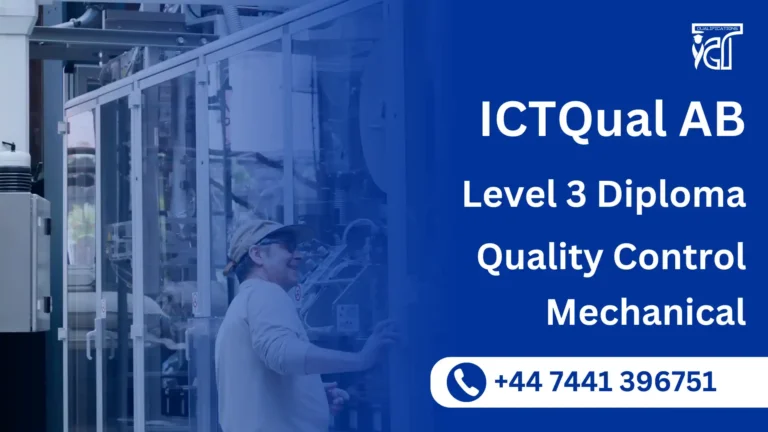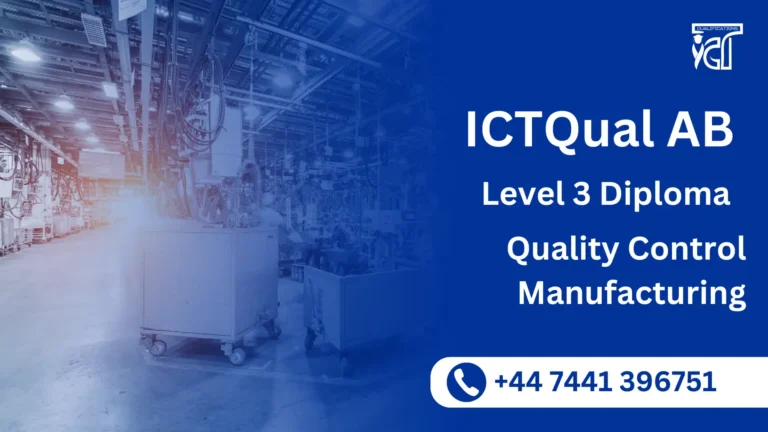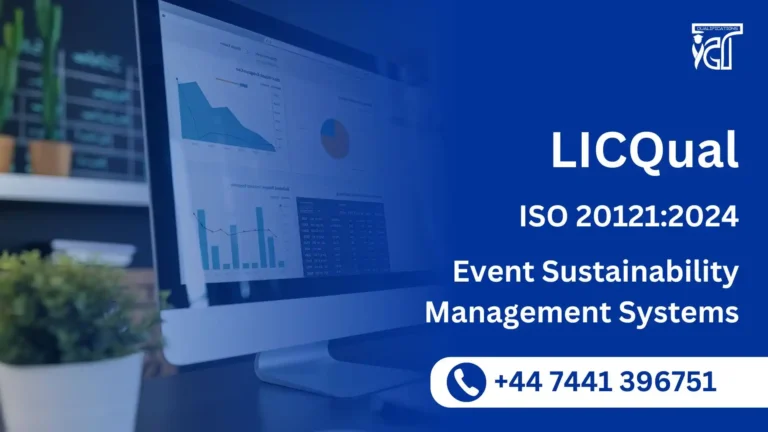As global temperatures rise and extreme weather events become more frequent, climate change and heat stress have emerged as critical issues in public health, environmental science, and workplace safety. The LICQual Level 3 Award in Climate Change and Heat Stress is a foundational qualification that equips learners with essential knowledge to understand, assess, and respond to the challenges posed by climate-related heat stress and its impact on ecosystems, health, and the economy.
This course is ideal for individuals, professionals, and organizations aiming to enhance their awareness and responsibility in environmental and climate-related matters.
The LICQual Level 3 Award in Climate Change and Heat Stress provides an in-depth introduction to the causes, consequences, and mitigation strategies related to global warming and heat stress. This course helps learners develop a clear understanding of climate science, policy frameworks, and the risks associated with heat-related health and safety in both urban and occupational environments.
As climate concerns continue to shape global policy and workplace regulations, this course is timely, relevant, and designed to meet international standards for environmental and safety education.
The LICQual Level 3 Award in Climate Change and Heat Stress is an essential qualification for anyone aiming to understand and respond to one of the most urgent challenges of our time. By offering a blend of scientific insight, practical safety knowledge, and policy awareness, this course empowers learners to take meaningful action in their communities, workplaces, and beyond.
LICQual Level 3 Award in Climate Change and Heat Stress
Following are the mandatory units of LICQual Level 3 Award in Climate Change and Heat Stress.
| Unit Ref# | Unit Title | Credit | GLH |
| LICQ2200396-1 | Introduction to Climate Change | 1 | 3 |
| LICQ2200396-2 | Heat Stress and Its Effects | 1 | 3 |
| LICQ2200396-3 | Risk Assessment and Management | 1 | 3 |
| LICQ2200396-4 | Workplace Adaptations | 1 | 3 |
| LICQ2200396-5 | Emergency Response and First Aid | 1 | 3 |
| LICQ2200396-6 | Legal and Regulatory Compliance | 1 | 3 |
GLH (Guided Learning Hours) and TQT (Total Qualification Time) are terms commonly used in vocational qualifications to help define the amount of time a learner is expected to spend on their studies.
1. GLH (Guided Learning Hours)
GLH refers to the number of hours a learner spends being directly taught, supervised, or supported during their course. This includes the time spent in activities such as:
- Classroom instruction
- Practical workshops
- One-on-one tutoring or mentoring sessions
- Online learning sessions with tutor support
In other words, GLH represents the time that learners are actively engaged with their instructors or learning activities.
2. TQT (Total Qualification Time)
TQT represents the total amount of time a learner is expected to invest in completing a qualification, including:
- GLH (Guided Learning Hours): Time spent on direct learning, as explained above.
- Self-Directed Learning: This includes time spent on independent study, research, assignment completion, preparation for exams, and any other work the learner does outside of direct teaching hours.
TQT is a broader measure that includes all the time required to achieve the qualification. It helps learners and employers understand the overall commitment required for the qualification.
Key Differences Between GLH and TQT:
- GLH focuses on direct learning with guidance or supervision.
- TQT includes GLH as well as independent study time and other learning-related activities.
Example:
If a qualification has a TQT of 600 hours and a GLH of 250 hours, it means the learner should spend 250 hours in direct learning (classroom, online, or tutor-led sessions) and 350 hours on independent study or research.
By the end of this course, learners will be able to:
1. Introduction to Climate Change
- Understand the scientific principles behind climate change and global warming.
- Identify the key drivers, trends, and global impacts of climate change.
- Analyze the role of human activity in accelerating environmental change.
2. Heat Stress and Its Effects
- Explain what heat stress is and how it affects the human body and performance.
- Recognize the signs, symptoms, and health risks associated with heat exposure.
- Identify vulnerable populations and high-risk environments for heat stress.
3. Risk Assessment and Management
- Conduct basic risk assessments related to climate change and heat stress.
- Apply hazard identification and risk control techniques in different settings.
- Develop strategies to minimize risks and promote safe, sustainable environments.
4. Workplace Adaptations
- Recommend practical workplace modifications to reduce heat-related risks.
- Evaluate the effectiveness of ventilation, hydration, scheduling, and PPE.
- Implement climate-resilient solutions tailored to specific industries or job roles.
5. Emergency Response and First Aid
- Describe the correct first aid procedures for heat exhaustion and heat stroke.
- Understand the components of an effective emergency response plan.
- Demonstrate readiness to respond promptly to heat-related incidents.
6. Legal and Regulatory Compliance
- Identify relevant international and national laws related to climate and workplace safety.
- Interpret regulatory requirements concerning heat exposure and worker protection.
- Ensure compliance with legal standards and contribute to policy development.
Benefits of the LICQual Level 3 Award in Climate Change and Heat Stress
The LICQual Level 3 Award in Climate Change and Heat Stress provides essential knowledge and skills to understand and address climate-related risks, particularly the challenges posed by heat stress. Here are the key benefits of undertaking this course:
1. Globally Recognized Qualification
- Earn a widely recognized certification that enhances your professional profile in the global environmental sector, demonstrating your commitment to sustainability and climate resilience.
2. Comprehensive Understanding of Climate Change
- Gain a solid foundation in climate science, the causes and effects of global warming, and the implications for ecosystems, public health, and society.
3. Practical Knowledge of Heat Stress Management
- Learn how to identify, assess, and mitigate heat stress risks in various environments, particularly in outdoor and industrial workplaces, improving health and safety standards.
4. Career Advancement Opportunities
- Open doors to career opportunities in environmental management, health and safety roles, sustainability consulting, and climate change policy, where climate change awareness is increasingly in demand.
5. 100% Assignment-Based Assessment
- The course is assessed through assignments rather than exams, allowing learners to apply their knowledge in practical, real-world contexts and eliminating exam-related stress.
6. Flexibility in Learning
- Offered via online, distance learning, or blended formats, this qualification allows professionals to learn at their own pace, making it ideal for those balancing work and study.
7. Pathway to Advanced Qualifications
- This Level 3 Award provides a stepping stone toward higher-level qualifications in environmental management or sustainability, such as the LICQual Level 5 or 7 Diplomas.
8. Relevance Across Multiple Sectors
- This course is beneficial for professionals working in a wide range of industries, including construction, agriculture, healthcare, government, and environmental consultancy, where climate-related challenges are becoming more pressing.
9. Enhanced Workplace Safety
- Learn how to reduce the risks of heat-related illnesses in the workplace, ensuring better health and safety management and compliance with emerging regulations around climate change and heat stress.
10. Increased Awareness and Advocacy
- Equip yourself with the knowledge to advocate for climate change action and heat stress prevention, whether in your organization, community, or within public policy discussions.
By completing the LICQual Level 3 Award in Climate Change and Heat Stress, learners are not only enhancing their professional skill set but also contributing to the global effort to tackle climate change and its associated impacts on human health and the environment.
This diploma is ideal for:
- Professionals working in environmental management, health and safety, or sustainability roles.
- Individuals involved in occupational health, industrial hygiene, or workplace safety oversight.
- Public health practitioners and emergency responders seeking to understand heat-related risks.
- Urban planners, civil engineers, and infrastructure specialists concerned with climate adaptation.
- NGO workers, humanitarian aid personnel, and disaster risk reduction teams.
- Educators, trainers, and academic professionals teaching climate science or environmental studies.
- Students and recent graduates aiming to build foundational knowledge in climate change and heat stress.
- Policy makers, government employees, and regulatory officers dealing with climate and labor standards.
- Business leaders and HR managers implementing environmental or employee wellness strategies.
- Anyone with a strong interest in sustainability, climate resilience, and global environmental issues.
Entry Requirements
Register Now
Qualification Process
Qualification Process for the LICQual Level 3 Award in Climate Change and Heat Stress
- Self-Assessment:
Begin by evaluating your eligibility to ensure you meet the qualification requirements, including work experience, knowledge, and language proficiency. - Registration:
Complete your registration by submitting the required documents, including a scanned copy of a valid ID, and paying the registration fee. - Induction:
An assessor will conduct an induction to confirm your eligibility for the course and explain the evidence requirements. If you do not meet the criteria, your registration will be canceled, and the fee will be refunded. - Assignmnets & Evidence Submission:
Provide all assignmnets and the necessary evidence based on the assessment criteria outlined in the course. If you are unsure of the required evidence, consult with the assessor for guidance on the type and nature of evidence needed. - Feedback and Revision:
The assessor will review your submitted evidence and provide feedback. Evidence that meets the criteria will be marked as “Criteria Met,” while any gaps will be identified. You will be asked to revise and resubmit if needed. - Competence Evidence:
Submit final evidence demonstrating that all learning outcomes have been met. This evidence will be marked as “Criteria Met” by the assessor once it is satisfactory. - Internal Quality Assurance (IQA):
The Internal Quality Assurance Verifier (IQA) will review your evidence to ensure consistency, quality, and compliance with standards. - External Verification:
The IQA will submit your portfolio to LICQual External Quality Assurance Verifiers (EQA) for final confirmation. The EQA may contact you directly to verify the authenticity of your evidence. - Certification:
Upon successful completion of all checks, LICQual will issue your official certificate, confirming that you have attained the LICQual Level 3 Award in Climate Change and Heat Stress.







